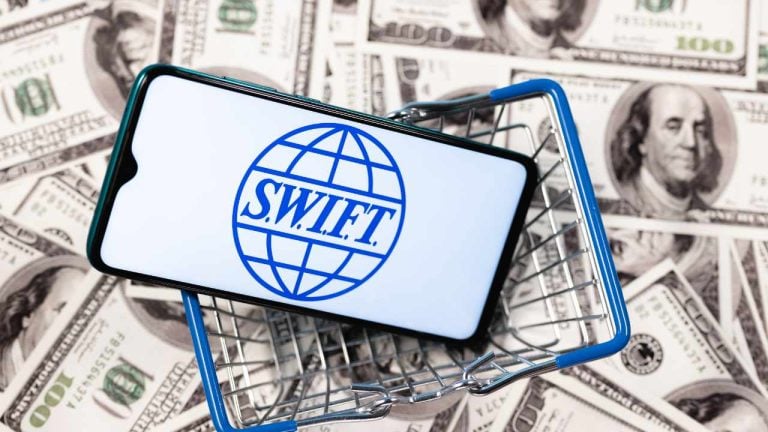
The U.S. dollar’s dominance in global payments has strengthened, according to data compiled by global financial messaging service SWIFT. The share of SWIFT FX transactions involving the U.S. dollar rose to a record 46% in July. In addition, the share of the transactions involving the Chinese yuan has increased.
SWIFT Data Indicates US Dollar Dominance
The dominance of the U.S. dollar in international payments has reached a record high, according to the latest transaction data from the Society for Worldwide Interbank Financial Telecommunication (SWIFT), the leading global financial messaging service. SWIFT’s messaging platform, products, and services connect more than 11,000 banking and securities organizations, market infrastructures, and corporate customers in more than 200 countries and territories.
The data shows that the share of SWIFT FX transactions involving the U.S. dollar rose to a record 46% in July, compared to slightly more than one-third a decade ago, Bloomberg reported this week. SWIFT compiles approximately 200 million FX confirmations annually.
The rising number of SWIFT transactions involving the U.S. dollar has largely been achieved at the expense of the euro, which reached its highest point at a 46% share in 2012. The share of the European common currency in trades subsequently hit its lowest level on record, trading slightly below a quarter.
SWIFT’s data also shows a growing trend in Chinese yuan-related transactions in global foreign exchange markets. In July, over 3% of instructions sent via SWIFT involved the Chinese yuan, which was the second time on record. In comparison, this figure stood at around 0.03% in 2010.
A growing number of countries are ditching the U.S. dollar in favor of the Chinese yuan or other national currencies. A global de-dollarization movement is led by the BRICS nations (Brazil, Russia, India, China, and South Africa). The economic bloc wrapped up its 15th annual summit this week, and the BRICS leaders agreed on the importance of encouraging the use of national currencies in international trade and financial transactions.
Many economists have cautioned that the U.S. dollar’s dominance will not last forever, including Nobel laureate Paul Krugman. However, most do not see the Chinese yuan as a serious threat to dollar hegemony.
Do you think the Chinese yuan could challenge the U.S. dollar’s dominance? Let us know in the comments section below.
Post a Comment